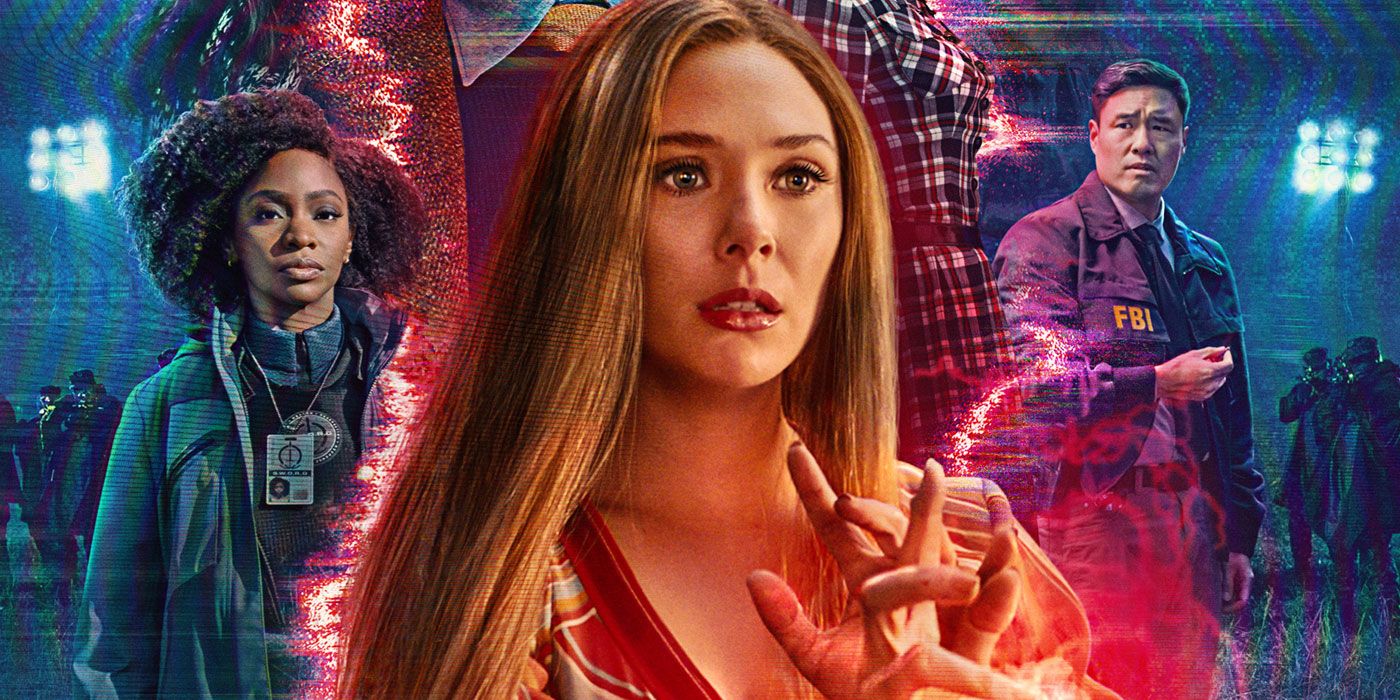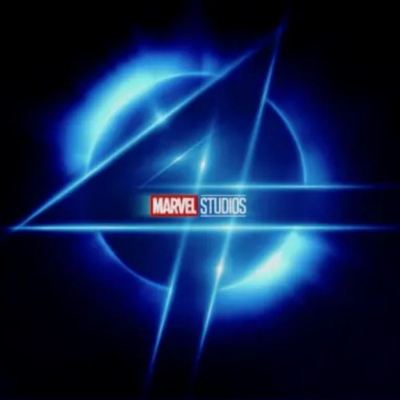This article contains WandaVision spoilers.
WandaVision is in its home stretch, with one big “villain” reveal hitting at the end of episode 7, and more expected any episode now. Agatha Harkness’ basement gave off some real strong bad gal vibes, but historically in the comics she’s never been the mastermind behind Wanda’s troubles, so much of the world is expecting another.
And while all the speculation so far has centered on Mephisto – justifiably so, considering his history with Wanda, Billy, Tommy, and Master Pandemonium’s arms – we think there’s one dark horse contender that not enough people have been talking about. With his history with Wanda and his future with the Avengers (and very likely in the MCU, if the tea leaves we’re reading are correct), there’s a better than decent chance that this guy will be popping up in WandaVision’s final episodes.
But first, let’s get one thing straight…
Agatha Harkness…is a red herring?
The end of episode 7 of WandaVision plays up the sinister aspects of Agatha Harkness. Her basement looks like it could have been ripped from the set of Sabrina the Teenage Witch. But that doesn’t mean she’s actually evil.
In fact, through the entirety of Wanda’s story in the pages of Marvel Comics, Agatha has been one of the few people actually interested in Wanda’s well being. Sure, she was often very matriarchal about it, but she actually seemed to care that Wanda was messing with her own children’s existence. And in a Scarlet Witch solo miniseries from the mid ‘90s, she was the only one actually concerned with trying to give Wanda agency. It would be a big swerve for the show to adapt her into an outright villain.
However, she was also prominently involved in Wanda’s “nexus being” storyline as the one trying to snap Wanda out of Immortus’ trance (more on that in a minute). I am willing to bet a small amount of money that Agnes is not the main villain of WandaVision, just acting shady about how she’s trying to break Wanda free of someone else’s control.
That you, Mephisto?
We’ve been inundated with Mephisto references to this point – between all the “Demon Spawn”s and Coronet Theaters and devils in details. And to be completely fair, Mephisto makes a lot of sense as the big bad of WandaVision.
Billy and Tommy’s birth in the comics was a bit of a mystery when it happened. As in, how could a woman and a synthezoid possibly have offspring? Also the fact that they were twins was a surprise, but I don’t know that that’s especially relevant. Anyway, turns out Doctor Strange is a crappy OB and also, the way a woman and a synthezoid could have children was if the woman loved the synthezoid very much, she could capture wild magical energy loose because of damage caused to the lord of Hell’s soul by a battle with Franklin Richards, channel that energy into her womb, and create life and souls with it. Mephisto was not powerful enough to escape battle with the Fantastic Four’s firstborn, and Wanda unwittingly used shards of his soul to create Billy and Tommy.
Later on, a movie exec who cut a deal with Mephisto, one Master Pandemonium, tried to capture the twins, as he believed that the kids were actually fragments of his lost soul. Alas, instead they were just his arms, and when he went to reabsorb them into his body, Mephisto hopped in and took his complete soul back from the sleazeball with babyhands.
So Mephisto is deeply entwined with the origins of Billy and Tommy, and with Wanda’s story in the comics. But what if he’s not in the show? What if, while everyone else is focused on Mephisto, WandaVision actually gives us…
Immortus
Immortus is, among other things, the Scarlet Centurion, Iron Lad, Victor Timely, Pharaoh Rama Tut, and a Pope. He is a continuity black hole, but the simplest explanation is that he’s the oldest version of the being who, at varying points in his history, was/is/would become Kang the Conqueror.
Here’s a…profoundly condensed version.
The being who would become Immortus was born in the 30th century, to a post-scarcity world of peace, prosperity, and plenty. He was bored as shit by this. So he stole a time machine, traveled back to ancient Egypt, ruled as Pharaoh Rama Tut for a bit, got a taste for conquering, and eventually became Kang, who would come to rule tens of centuries as the undisputed lord of time. Eventually he got so good at conquering that he ended up just…ruling…instead of conquering anymore, and that was where his downfall began.
After a series of paradoxes he got his own damn self into, he eventually hooked up with the Time Keepers, a trio of beings from the end of all time trying to do a bunch of stuff that ultimately would end up ensuring their own creation. As a brief aside, the Marvel time travel characters are like if you kept introducing new invasive species to a pond to wipe out the last invasive species you put in the pond. It’s grandfather paradoxes all the way down.
Anyway, the Time Keepers put Immortus in charge of cleaning up his own timeline as well as monitoring the Avengers segment of the timestream. Along with his mastery of time, Immortus also had the ability to dance around the multiverse. He could peer between timelines, prune the bad ones, trap Kang and Songbird and Yellowjacket in the wild west, etc. etc.
Also his name is Nathaniel Richards.
The Fantastic Four Connection
Wait, does this mean Immortus is the father of Mister Fantastic, Reed Richards?
Technically no. But he may be a descendant of Reed Richards. Or Dr. Doom. That’s where he gets the time portal from. Apparently.
Read more
This is probably not how they’re introducing the Fantastic Four to the MCU. It would be very weird to, say, flash back to Howard Stark and Nathaniel Richards going on a SHIELD mission in the ‘50s that had them cross paths with the Time Stone, have Howard believe Nathaniel was lost in action when Richards merely created an offshoot timeline that included the Fantastic Four and mutants, only to have an immortal Nathaniel, embittered by countless lifetimes of loss and hollow conquering, travel back to find a way to remerge the timelines so his past self could have a happy life.
It would be particularly ridiculous for that to happen in a future Marvel show like Loki. Anyway, let’s get back on subject.
What Does Nexus Mean?
The commercial in episode 7 featured an anti-depressant called Nexus, a pointed reference to one of Wanda’s roles in the greater Marvel Comics cosmogony. Wanda is a Nexus Being, an entity with tremendous power over the path of reality, who can alter futures even after they’ve set, create branching timelines, and possibly prevent powerful, important beings in the future from being born. And they typically have exceedingly powerful children – kids who, when fully mature, can rival universal constants like Eternity, the Living Tribunal, Chaos, Order, or Death.
In the comics, Wanda was a threat both to the Time Keepers, who wanted nothing more than to ensure their own existence would come to pass, and Immortus, who wanted to also ensure his own timeline would come to pass and ALSO screw those fish faced Time Keepers out of their jobs. To do this, he decided the best path would be to be a real dick to Wanda.
First, he tricked Wanda and Vision into falling in love, thinking nobody could make a baby with a synthezoid. Then he screwed around with Vision’s body and timeline, making him inhabit the body of the original Human Torch, then not inhabit that body, then do both at the same time. Then he just up and drove Wanda insane, infusing her with additional power to amp her nexus abilities, letting her manipulate the timestream at a whim.
Which leads us to…
MCU Phase 5: Avengers Forever
Here is a sampling of things we know or can reasonably ascertain about the future of the MCU.
- Time travel is probably going to be the thrust of Loki. We see the Time Variance Authority in the trailer, along with a brief flash of statues that look like the Time Keepers.
- A lot of the MCU TV shows seem to be pointing towards Young Avengers. Kate Bishop is in Hawkeye, Billy and Tommy are in WandaVision, and while it’s not a TV show, Cassie is in Ant-Man 3.
- Also in Ant-Man 3 is Kang the Conqueror himself. He fits the Young Avengers theory – the youngest version of Rama Tut/Kang/Scarlet Centurion/Immortus was Iron Lad, the mysterious Iron Man analogue from the teen hero group.
The Young Avengers theory feels like a slam dunk. It would be the least surprising thing in the world to have Patriot (Eli Bradley, the grandson of Isaiah Bradley, a recipient of an experimental super soldier serum in a dark, Tuskegee Experiment-style follow up to the original super soldier program) show up in The Falcon and The Winter Soldier, and there’s no way Marvel would spend that much energy laying the groundwork for a new generation of Avengers and not have it pay off. However, if you squint hard enough, you can see a second path being cut by these shows.
Avengers Forever.
Avengers Forever is a 1998 miniseries by Kurt Busiek and Carlos Pacheco that is widely beloved for its distillation of decades of Marvel continuity into one epic story. It has Kang and the Kree Supreme Intelligence gathering a team of Avengers from disparate points in the timeline – Yellowjacket from the early days of the Avengers; Hawkeye from just after the Kree-Skrull War; a disillusioned Captain America from a low point in the medium past; present day Wasp and Giant Man; and Songbird and Captain Marvel from a future Avengers team – to battle Immortus and the Time Keepers for the life of Rick Jones.
All the elements are there, from the time travel nonsense to the easy opportunity to get the whole gang back together. The key is Immortus, and he could be revealed soon in WandaVision.


